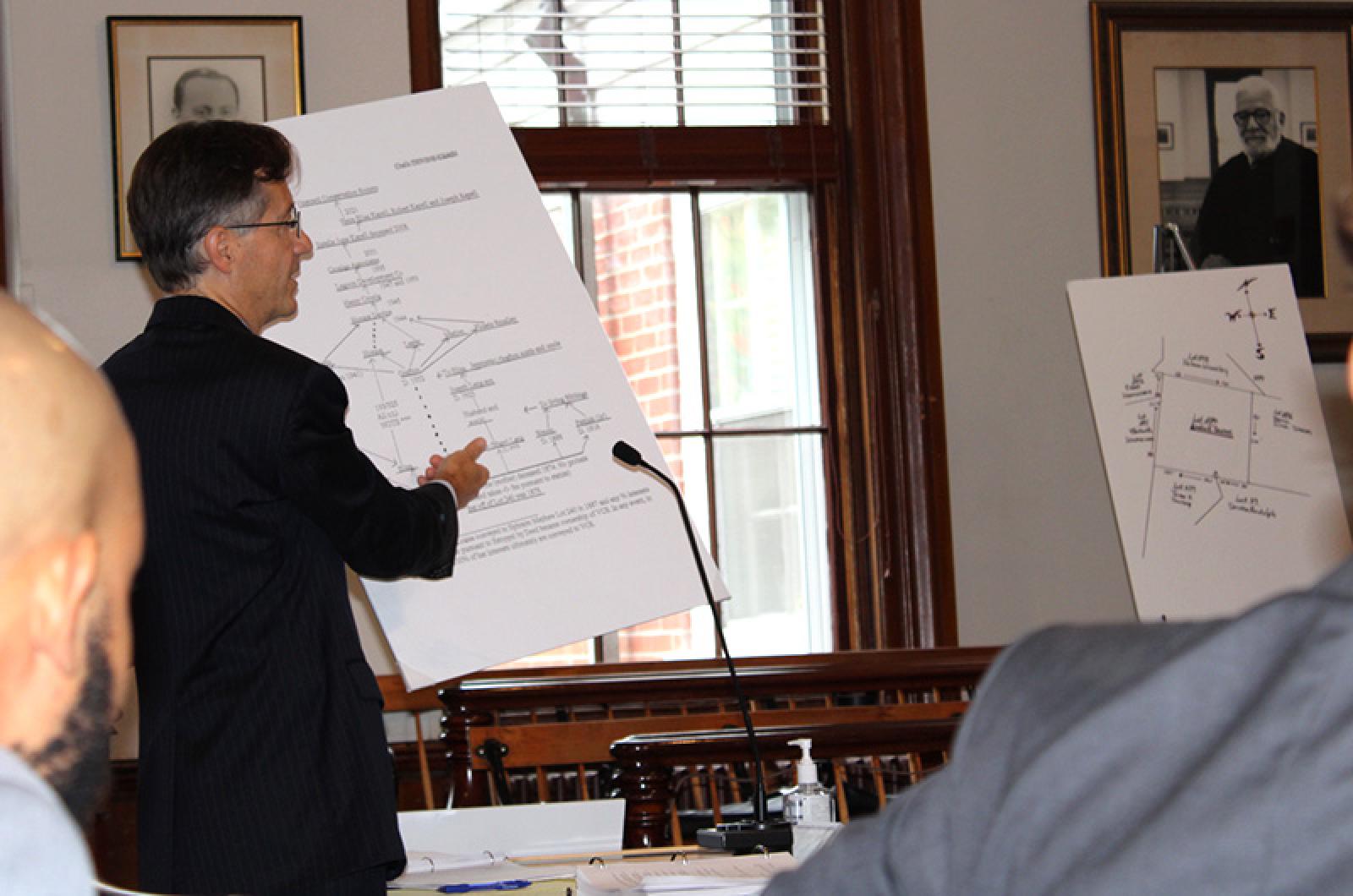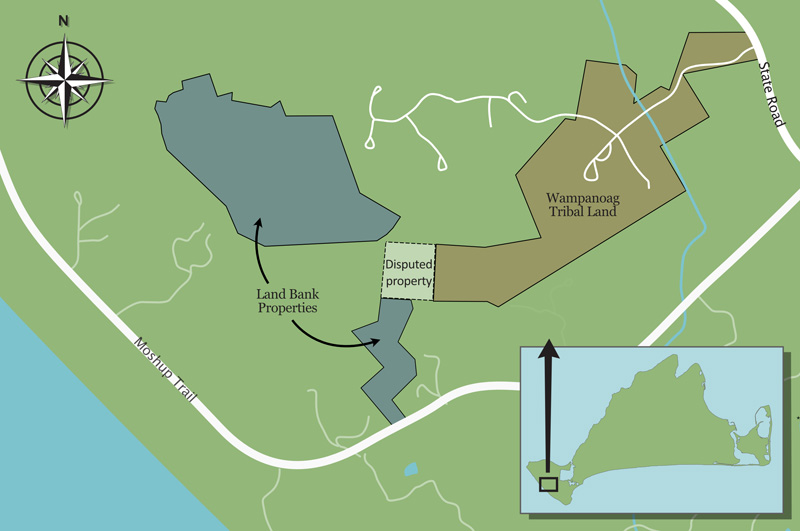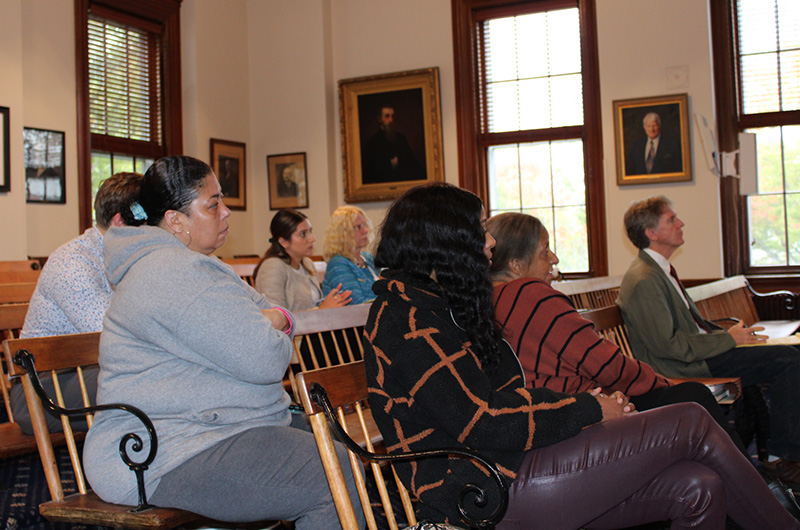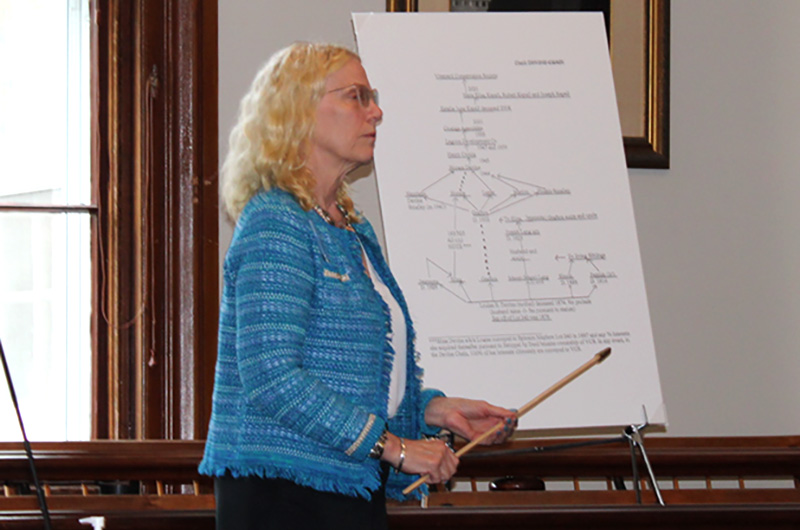A small, landlocked lot off Moshup Trail in Aquinnah has become the subject of a complex land dispute between a Vineyard conservation organization and the descendants of a former deed holder.
The case, Vineyard Conservation Society vs. Jaime Lobo Baptiste & Others, dates back five years to 2017, when VCS filed a court complaint requesting a judgment that it holds title to the small parcel of land in Aquinnah.
After significant delays, the dispute recently wound its way into Dukes County Superior Court for a one-day bench trial. A Superior Court judge, the Hon. Karen Goodwin, denied the conservation organization’s request for summary judgment in August.
At issue is an approximately 5.7-acre parcel of land known as “Lot 240” that Vineyard Conservation Society — a non-profit land conservation organization based on Martha’s Vineyard — argues was gifted to the organization by Caroline Kennedy in 2013 as part of a larger year-end gift that included 30 acres of the family's Red Gate Farm property in Aquinnah. The total land gift was valued at $3.7 million at the time, and included rare morainal heathlands that have become a priority for Island conservation organizations.
In 2019, the Kennedy family sold more than 300 acres of the Red Gate Farm property to the Martha’s Vineyard Land Bank and Sheriff’s Meadow Foundation for $27 million.
Assessor’s records show that the disputed 5.7-acre parcel was appraised at $57,000. The square-shaped lot is nestled just northwest of Moshup Trail and abuts Aquinnah Wampanoag tribal housing to the east, as well as Martha’s Vineyard Land Bank property to the south. Assessor’s records currently list the descendants of Louisa E. Devine and the conservation society as co-owners.
According to court documents, Vineyard Conservation Society claims it has ownership of Lot 240 through two different chains of title that extend back to the original lot partitions of Wampanoag common lands in the late 19th century. A group of 19 descendants of the original landowner have fought the claim in court, with the issue coming to a head last Thursday.
An agreed statement of facts filed in court says that Lot 240 was drawn by Louisa E. Devine, listed as “Census No. 3” in 1878. But Ms. Devine died in 1874, four years before the partition, raising questions about how and whether the lot passed by chain of title to the conservation organization.
In court prior filings, VCS has argued that the lot was actually meant to be deeded to Louisa’s daughter, also named Louisa Devine but known as “Eliza” and listed as “Census No. 11.” The conservation society argued in court Thursday that there are two separate chains of titles that support the conservation organization’s ownership claim, one from Ephraim Mayhew that continues to the Kennedy family, and the other from Eliza’s nephew, Horace Devine.
But descendents of Eliza’s mother, Louisa Devine, have argued in court that there is no evidence the land was meant for Eliza, and if it was, the chains of title are invalid because Lot 240 was not specifically included in Eliza’s deed to Ephraim Mayhew or to Horace Devine.
During the trial Thursday, Vineyard Conservation Society argued before the Hon. Janet Sanders that broad language in the deed meant Eliza conveyed it to Mr. Mayhew without having to refer to the lot specifically.
“‘Some land in Gay Head’ and ‘all the rest of my land in Gay Head’ is unambiguous,” attorney John Willis argued, referencing language in the deed.
The conservation organization called Island real estate lawyer and title examiner Candace Nichols as an expert witness. Ms. Nichols reviewed lengthy family trees and poster-boards of title chains showing what she believed were both claims of title for VCS, and that interest in the property did pass to Eliza.
A lawyer for the descendants challenged those claims, arguing that even if Eliza had claim to the lot, there isn’t evidence showing it was meant to be conveyed in subsequent land transactions.
“The only claim the plaintiff has to the land is this fraudulent conveyance,” attorney Jonathon Polloni stated. “The plaintiffs have zero interest in the land involved…this is a question of determining the intent of the grantor.”
Judge Sanders summarized the dispute in her own words, taking the matter under advisement Thursday.
“It sounds like the main factual problem in this case really starts at the beginning, back in the 1880’s, in this designation of Louisa as being the owner of Lot 240, and then Lot 240 actually conveyed by her daughter, after Louisa being dead by the time she was granted this specific lot,” Judge Sanders said. “And that's I think the factual issue, that we are all struggling with how to deal with that."
Corrected to exactly reflect Judge Sanders's quotation.








Comments (4)
Comments
Comment policy »